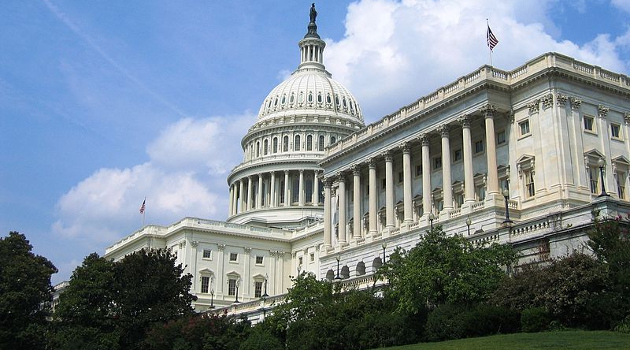My views on gridlock were fully captured in the title of a 2015 column, which stated that divided government was “Better than the Alternative of Expanding Government.”
And I followed up with a 2020 column that showed that spending restraint was more likely when the two parties were forced to share power.
To be sure, divided government also can produce very bad results (the country suffered a big expansion in the burden of government during the Nixon years, for instance).
But J.D. Tuccille from Reason explains why Americans should feel happy about gridlock starting in 2023.
…the election results stand as an expression of overwhelming lack of confidence in the major parties, with a resulting breather for the country resulting from the split decision’s ensuing, and quite welcome, gridlock. …The Wall Street Journal‘s Brody Mullins and John D. McKinnon noted last week. “…Washington overall isn’t expected to do much for the next two years.” That’s good news for Americans baffled by Democrats’ insistence on treating the U.S. economy as something between a laboratory experiment and a toy train set, with lawmakers indulging their whims through serial rounds of life-altering policy moves. …Republicans didn’t exactly convince the country that they were the cavalry riding to the rescue. Their main selling point seems to have been that they weren’t Democrats. …gridlock, with all of its faults and instability, is what we have, and we should be thankful for that. …gridlock can give us a bit of a national breather, and that may be the best we can hope for from a destructive political system.
Amen. I’m in favor of more breathing room for the economy’s productive sector. That’s when we get better outcomes.
But there are two reasons why gridlock is not a long-run solution.
First, Tuccille points out that we now have presidents claiming autocratic powers.
The gridlock…isn’t total. The increasingly autocratic nature of the presidency allows enormous room for the nation’s chief executive to act unilaterally. Through executive orders and memoranda, presidents enact policy changes that should go through Congress (if they’re permissible at all) in a manner befitting elective monarchs. The only real check on that power is the willingness of the courts to remind the country that, while rule-by-decree is a form of government, it’s not one permitted by the Constitution.
Second, we have very serious problems (an awful tax system, runaway entitlement spending, the administrative state, etc) that can only be solved by legislative action.
I’ll close with a depressing observation about what to expect from politics. Simply stated, politicians generally have incentives to maximize their short-run status, not to maximize the nation’s long-run health.
So, whether we have gridlock or not, it’s not easy to be optimistic.
Unless, of course, we can figure out ways to reincarnate the very rare Republican and very rare Democrat who did the right thing.
Until and unless that happens, I want politicians to be “unproductive.”
———
Image credit: Martin Jacobsen | CC BY-SA 3.0.


